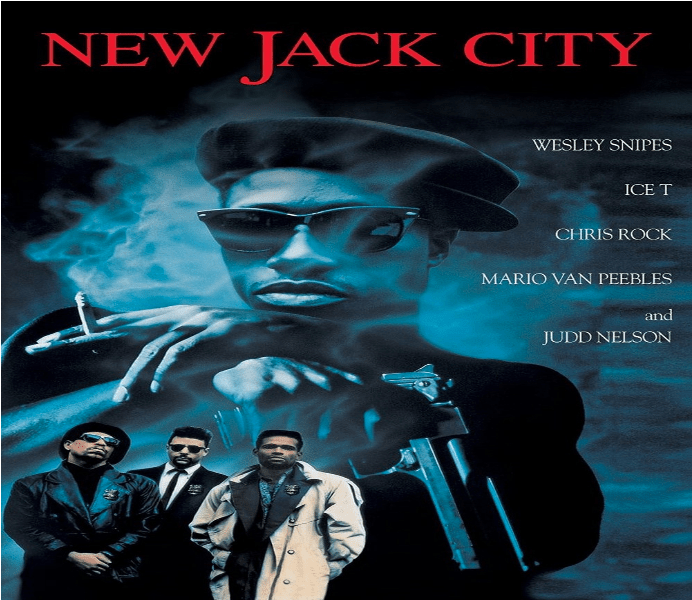On this day, 31 years ago, the cult-classic crime thriller New Jack City arrived in theaters across America. The story of the rise and fall of Nino Brown and the Cash Money Brothers has continued inspired Hip Hop culture for a quarter-century and continues to permeate the culture that made it a success.
New Jack City came about at a pivotal time. In 1991, Hip Hop was still a fledging music genre and culture, looking to legitimize itself in the eyes of mainstream America officially. In addition, the blaxploitation film genre had been defunct for over a decade, leaving a gaping hole in “Black Hollywood.” New Jack City was a harbinger of the resurgence of Black actors, writers, and filmmakers in Hollywood, as well as the crystallization of Hip Hop’s synergistic capabilities.
The film also catapulted actors like Wesley Snipes, who played the lead role as the morally barren kingpin Nino Brown and Chris Rock stick-up-kid-turned-crackhead-informant “Pookie,” into stardom. The film’s director Mario Van Peebles also made his directorial debut with the film, which he also starred in. Ice T, who also played a major role in New Jack City as NYPD detective “Scotty Appleton,” spoke with Rock on his “Final Level” podcast about some of the behind-the-scenes of the cult classic.
Chris Rock: At the time, you and I were the most popular people in the cast, really, just ’cause we’d done s**t.
Ice-T: We’d done things.
Chris Rock: Nobody knew Mario [Van Peebles]. Nobody knew Wesley [Snipes].
Ice-T: Wesley had done Major League.
Chris Rock: No one knew “G-Money,” you know, Allen Payne.
Ice-T: That was what got me confident enough to act.
Chris Rock: And you were actually making money. [Laughs] I was broke.
…
Ice-T: … You know, it was an interesting experience. New Jack City was a new-jack movie. The director was a new-jack.
Chris Rock: The producers were new-jacks, new-jack actors, new-jack soundtrack. Remember we kept runnin’ out of money? There was a couple of times, while we were filming, we were like, “This s**t is getting shut down.” Like, the chase on the bikes was [suppose to be] a car-chase. But it turned into a bike-chase; we had no money! [Laughs] Somebody had to think fast.
The film was shot on an $8 million budget and premiered at the 1991 Sundance Film Festival on January 17, 1991. The film would later release nationally on March 8, 1991, raking in $7,039,622 in opening weekend sales — and later became the highest-grossing indie film of 1991 with $47,624,253 domestically.
The film also had a longstanding effect on the music industry. Perhaps the most notable example is brother Bryan “Birdman” and Ronald “Slim” Williams‘ Cash Money Records label, a blatant reworking of Nino Brown’s “Cash Money Brothers” gang in the film. In addition, Lil Wayne‘s solo album series Tha Carter is not only his last name but an homage to “The Carter,” Nino’s crack house fortress in the film, as well as name drops Nino in his 2010 single “I’m Single.”
For decades, Nino Brown has become a regularly referenced movie character in rap lyrics. A simple search of “Nino Brown” on RapGenius shows over 4000 references to the surface by artists from all over the world. It’s safe to say Nino and New Jack City will continue to inspire generations to come, and if you disagree…




